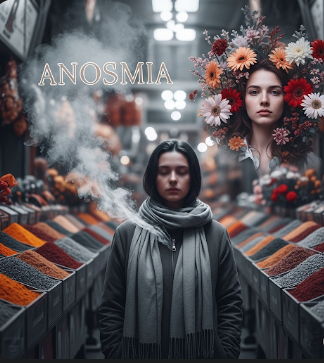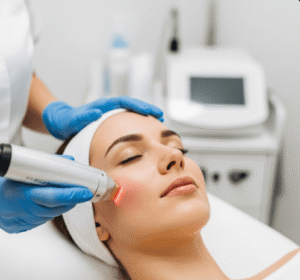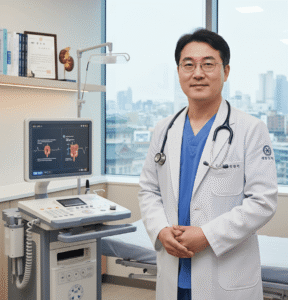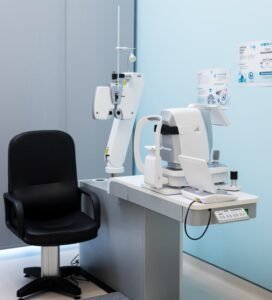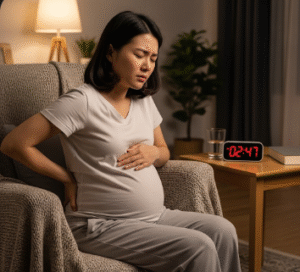Overview
Anosmia refers to the complete loss of the sense of smell. While temporary loss of smell can occur with common colds or sinus infections, persistent anosmia may indicate more serious underlying health conditions. Because smell is closely linked to taste, many people with anosmia also experience reduced appetite, poor nutrition, or a decreased quality of life.
In recent years, anosmia gained widespread attention as a hallmark symptom of COVID-19. However, other causes such as nasal polyps, head trauma, neurological disorders, and aging can also contribute.
In South Korea, patients with anosmia benefit from advanced diagnostic techniques, ENT (Ear, Nose, Throat) specialists, and innovative therapies. Korean hospitals are internationally recognized for their cutting-edge care in treating sinus conditions, neurological disorders, and post-viral complications.
Key Facts
Highlights:
➡️ Anosmia is the complete loss of the sense of smell, while partial smell reduction is called hyposmia.
➡️ It may be temporary (due to colds or allergies) or permanent (from nerve damage or chronic disease).
➡️ Loss of smell significantly affects taste, nutrition, and quality of life.
➡️ COVID-19 made anosmia one of the most recognized global symptoms.
➡️ Korean ENT specialists provide advanced diagnostics and treatments, including surgical and non-surgical options.
What is Anosmia?
Anosmia is a condition where a person loses their ability to detect odors. It can be temporary, such as during a cold, or permanent if caused by nerve or brain damage. The condition may be partial (reduced smell) or total (complete loss). Because smell is tied to the sense of taste, anosmia can also make food taste bland, leading to loss of appetite and potential weight changes.
What Symptoms are Related to Anosmia?
While anosmia itself is the primary symptom, it may be accompanied by:
- Reduced ability to taste food and drinks
- Loss of appetite or unintended weight loss
- Nasal congestion or runny nose
- Headache or facial pain (common in sinus conditions)
- Changes in mood, including anxiety or depression
- Safety risks such as inability to detect gas leaks, smoke, or spoiled food
What Causes / Possible Causes of Anosmia?
Highlights:
➡️ Nasal and Sinus Conditions: Allergies, sinus infections, nasal polyps, or chronic sinusitis.
➡️ Respiratory Infections: Viral illnesses, including influenza and COVID-19.
➡️ Head Trauma: Injury to the olfactory nerve or brain regions responsible for smell.
➡️ Neurological Disorders: Alzheimer’s disease, Parkinson’s disease, or multiple sclerosis.
➡️ Aging: Natural decline in smell sensitivity with age.
➡️ Chemical Exposure: Long-term exposure to toxic substances such as smoke or industrial chemicals.
➡️ Medications: Some antibiotics, antihistamines, or chemotherapy drugs.
When Should I See My Doctor?
Highlights:
➡️ If your loss of smell occurs suddenly and without a clear cause (e.g., not related to cold or allergies).
➡️ If anosmia persists for more than two weeks.
➡️ If it is associated with sudden neurological changes such as vision problems, confusion, or weakness.
➡️ If you notice persistent nasal blockage, bleeding, or severe sinus pain.
➡️ If anosmia began after head trauma or injury.
Care and Treatment
Highlights:
➡️ Treating underlying conditions: Antibiotics for infections, allergy treatments, or removal of nasal polyps.
➡️ Nasal sprays and decongestants: To reduce inflammation and open nasal passages.
➡️ Smell training: Repeated exposure to strong scents (like lemon, rose, eucalyptus, and clove) may help retrain the olfactory system.
➡️ Lifestyle adjustments: Ensuring safety at home (installing smoke detectors, labeling food expiration dates).
➡️ Nutritional support: Focused diet to maintain taste balance and prevent weight loss.
➡️ Psychological support: Counseling for those experiencing anxiety or depression due to anosmia.
In some cases, especially when caused by nerve or brain damage, anosmia may not be fully reversible.
Treatment Options in Korea
South Korea is a global leader in ENT and neurological care, offering innovative treatments for anosmia.
Highlights:
➡️ Comprehensive Diagnostics: Nasal endoscopy, MRI, CT scans, and smell identification tests.
➡️ Advanced ENT Care: Surgical removal of nasal polyps, treatment of sinus blockages, and balloon sinuplasty.
➡️ Post-Viral Recovery Clinics: Specialized programs for patients recovering from COVID-19 or influenza-related anosmia.
➡️ Smell Rehabilitation Programs: Korean hospitals offer structured smell training therapies with proven success rates.
➡️ Neurological Evaluation: For anosmia linked to brain injury or degenerative disease, advanced neuroimaging and therapies are available.
➡️ Medical Tourism Packages: Korea provides cost-effective, high-quality ENT and neurology treatments for international patients.

